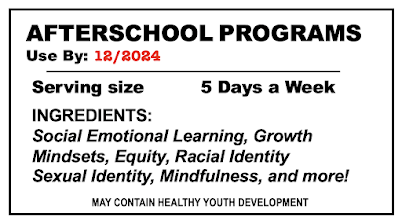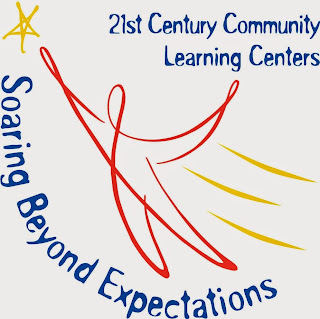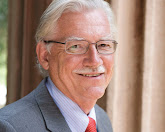 |
| Source: www.unsplash.com |
By Sam Piha
We live in a political climate where differences are not explored, they are weaponized. In recent months schools and educators have been attacked under the guise of critical race theory, parent rights and the call to ban certain books. While afterschool programs have not been attacked directly, there are certain core values and program initiatives that have come under scrutiny. They include equity, identity (LGBTQ+ and racial issues), mindfulness, growth mindsets, grit and social emotional learning (SEL). Are there many citizens who are leading this fight or is it a manufactured controversy, which is a product of the internet?
Here, we focus on the attacks on social emotional learning (SEL) and prepare afterschool leaders to address parent’s concerns about SEL.
“SEL has a history of both challenges and bipartisan support. SEL has faced political headwinds in some places before current debates over how schools discuss issues like racism and sexuality. But as interest in social-emotional learning rises among educators and policymakers, it’s also increasingly the target of ire from some conservative groups.” [1]
To raise awareness of the current SEL culture wars, we cite some of the titles and quotes from articles that have been published recently.
“The politics of social-emotional learning have shifted drastically in the past few years— especially in some conservative states—with critics claiming that SEL is a form of liberal indoctrination or a means for unqualified teachers to practice therapy. This shift has left many teachers and SEL practitioners in a tricky situation, trying to address parents’ concerns while continuing to teach SEL programs that may be required by the district and state.” [2] - Arianna Prothero, Education Week
HOW TO RESPOND TO PARENT CONCERNS ABOUT SEL
“Candace Peyton Wofford is an instructional coach and, up until recently, an SEL teacher in a middle school in Corpus Christi, Texas. She had her fair share of parents voice concerns that SEL is teaching their children concepts that go against their values. Through her conversations with parents, Wofford—who is a big proponent of SEL—has found ways to help calm their fears.”[3]
“The main argument is that they think that I’m trying to encroach on their belief system. Usually, it’s a Christian belief that they think I’m trying to go against. And I am just very transparent with them and very honest about what I’m teaching, and [that] it is not to go against anyone’s belief. It is truly just to help their child navigate life and be a better person.” [4] – Candace Peyton Wofford
According to Ms. Wofford, “Really, what they need to see is that I truly care for their child. And once they know that I have their child’s best interest in mind, why would you want to fight me on that? Why would you not want your child to be able to learn how to do a job interview, learn how to do a handshake, learn how to look someone in the eyes, learn how to get un-addicted to their phones? These are all things that we talk about in the classroom setting. You have to sit and listen to their concerns, validate their concerns, and really truly listen to understand and not listen to respond. Once you understand where they’re coming from, you can eventually make your response, and they end up realizing that y’all are both on the same page.” [5]
“When responding to parent concerns about Social-Emotional Learning (SEL), it's important to approach the conversation with empathy, clarity, and a focus on the positive outcomes of SEL. Parents may have various concerns, such as the impact of SEL on academic time, its appropriateness for their child, or its perceived alignment with their values.” [6]
Here are some key points to consider when addressing these concerns:
“1. Listen Actively and Acknowledge Concerns
Start by validating the parent’s feelings and concerns. It’s important to listen carefully before offering solutions or explanations. This shows respect for their perspective and helps build trust. For example: ‘I understand that you’re concerned about the time dedicated to SEL and its potential impact on your child’s academic performance. I’m glad you brought this up, and I’d like to explain how SEL is designed to complement, rather than replace, academic learning.’
2. Explain the Purpose and Benefits of SEL
SEL helps students manage emotions, build positive relationships, and make responsible decisions—skills that are critical for academic success and personal well-being. Empahsize that SEL is not just about feelings but also about building essential skills such as communication, empathy, teamwork, and resilience.
Research shows that SEL programs can improve academic performance, reduce behavioral issues, and promote mental health, which in turn helps children become better learners. ‘Studies have shown that students who participate in SEL programs tend to have improved academic outcomes, stronger relationships with peers and teachers, and better emotional regulation.’
3. Clarify the Scope of SEL
Many parents may not fully understand what SEL entails. You can explain that SEL is not about imposing values but about teaching life skills. Share the five core competencies of SEL (as defined by CASEL):
- Self-awareness: Understanding emotions and recognizing strengths and limitations.
- Self-management: Managing emotions and behaviors to achieve goals.
- Social awareness: Recognizing the perspectives of others and showing empathy.
- Relationship skills: Communicating effectively, resolving conflicts, and working cooperatively.
- Responsible decision-making: Making ethical and constructive choices.
Example: ‘SEL focuses on helping children understand and manage their emotions, which supports them in both school and life. It also teaches them how to interact with others in a positive, respectful way.’
4. Address Misconceptions and Fears
If parents have concerns about SEL being ‘too touchy-feely’ or not academic enough, explain how SEL connects directly to the development of critical thinking and problem-solving skills.
For concerns about SEL promoting a particular political or social agenda, reassure them that SEL is about universal life skills (e.g., emotional regulation, communication, conflict resolution) that are important in any setting. Example: ‘SEL is about developing skills that support academic and life success, not about promoting specific beliefs or ideologies. We focus on universal skills like empathy, decision-making, and problem-solving that will benefit all students, regardless of background.’
5. Provide Examples of SEL in Action
Share concrete examples of SEL practices used in the classroom, such as morning check-ins, group work, conflict resolution strategies, or mindfulness exercises. This can help demystify SEL and show how it’s integrated into daily activities. Example: ‘In the classroom, we use activities where students reflect on how they’re feeling or practice calming techniques like deep breathing. These practices help students become more focused and ready to learn.’
6. Highlight SEL’s Role in Mental Health
Given the increasing concerns about student mental health, explain how SEL can help build resilience, manage stress, and prevent emotional difficulties by giving students tools to cope with challenges. SEL helps students understand their emotions, which is key in preventing bullying, reducing anxiety, and supporting overall mental wellness.
7. Show How SEL Can Align with Family Values
If parents express concerns about SEL conflicting with their family’s values, suggest that SEL can reinforce family priorities such as empathy, respect, and good communication. It’s not about replacing the family role but supporting it. Example: ‘SEL aligns with many family values, like teaching children how to be kind, respectful, and responsible. It gives students the tools to apply those values in everyday situations.’
8. Offer Opportunities for Involvement and Feedback
Parents might feel more comfortable if they understand that they can stay informed and involved. Share opportunities for parents to learn more about SEL, such as workshops, newsletters, or parent-teacher meetings. Example: ‘We’re always looking for ways to keep families informed and involved. If you’d like, we can send home resources on SEL or invite you to an upcoming parent workshop.’
9. Encourage Ongoing Communication
Invite parents to continue the dialogue if they have further concerns or questions. This shows openness and a commitment to working together. Example: ‘I’m happy to keep the conversation going. If you have any other questions or if you'd like to discuss how SEL is being implemented in the classroom, please feel free to reach out.’
10. Reassure Parents about Balanced Curriculum
Remind parents that SEL is designed to complement academics and doesn’t take away from core subjects. It enhances students' ability to learn by improving emotional regulation, focus, and collaboration. Example: ‘SEL is integrated in a way that supports and enhances learning in all subject areas. When students are emotionally supported and have strong interpersonal skills, they’re better equipped to succeed academically.’
By responding with understanding and a focus on the positive, you can help parents see the value of SEL in fostering well-rounded, capable, and emotionally healthy students.”[7]
ADDITIONAL RESOURCES
Speakers include Terry Peterson (Afterschool Alliance), Michael Funk (California Department of Education), Bridget Laird (WINGS for Kids) and Melissa Schlinger (CASEL). Hosted by Dr. Femi Vance (American Institutes for Research) and sponsored by Temescal Associates and The How Kids Learn Foundation.
END NOTES
[1] Arianna Prothero & Evie Blad, Schools Face Fears of ‘Critical Race Theory’ as They Scale Up Social-Emotional Learning
[2] Arianna Prothero, How to Address Parents’ Concerns That SEL Goes Against Their Values
[3] IBID.
[4] IBID.
[5] IBID.
[6] OpenAI. (2024). ChatGPT (GPT-4 model). Retrieved from https://www.openai.com
[7] IBID.




















